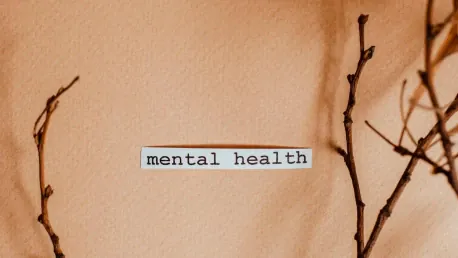In the recent article “Farmers and Hospitality Workers Face Similar Mental Health Struggles,” Janine Kennedy delves into the mental health challenges increasingly affecting small food producers and business owners, particularly within the farming and hospitality sectors. Over the past few years, both industries have grappled with significant stress and hardship, exacerbating mental health issues such as anxiety, depression, and burnout.
Common Themes and Key Points
Both farmers and hospitality workers are seeing a rise in mental health problems. The article cites statistics from Teagasc, an Irish agriculture and food development authority, demonstrating that farmers face a heightened risk of anxiety, depression, and suicidal thoughts. Similarly, hospitality workers, who often deal with high-stress environments, are significantly impacted by mental health challenges.
Moreover, the piece notes that up to one in four Irish farmers experience burnout, a state of physical and emotional exhaustion brought on by prolonged high-stress situations. This trend is mirrored in the hospitality sector, where the constant pressure and long working hours contribute to similar feelings of burnout among workers.
Kennedy also explores how individuals in these industries cope with their mental health struggles. Some have found support through community initiatives, while others have turned to mental health services specifically designed for their needs. This insight into coping mechanisms highlights the necessity for bespoke mental health resources.
Another important aspect covered is the stigma associated with mental health issues in these sectors. Despite ongoing efforts, stigma remains a significant barrier to seeking help. There is a growing push to raise awareness and promote open conversations about mental health to create a better support system for those affected.
Overarching Trends
The article identifies a clear trend of increasing mental health awareness within the farming and hospitality industries. There is growing recognition of the severe emotional toll these professions take and a concerted effort to address and support mental health more effectively. This includes the rise of community support initiatives and mental health resources tailored to the unique challenges faced by workers in these sectors.
Consolidated Information
By streamlining the discussion of key points, the article effectively communicates that the mental health struggles faced by farmers and hospitality workers are severe and multifaceted. However, these struggles are increasingly recognized and addressed through various support systems and awareness initiatives. The shared experiences of high stress, long hours, and burnout underscore the necessity for targeted mental health interventions in these industries.
Cohesive Narrative
Kennedy’s article interweaves personal stories from farmers and hospitality workers with broader industry trends and mental health statistics. This approach provides a comprehensive look at the current mental health landscape in these professions, highlighting both the challenges and the steps being taken to address them.
Main Findings
In Janine Kennedy’s recent article “Farmers and Hospitality Workers Face Similar Mental Health Struggles,” she explores the rising mental health challenges confronting small food producers and business owners, particularly in the farming and hospitality industries. Both of these sectors have been under tremendous pressure over the past few years, which has worsened mental health issues like anxiety, depression, and burnout. Farmers face unpredictable weather, fluctuating market prices, and the constant pressure to meet production demands. Hospitality workers, on the other hand, deal with long, irregular hours, difficult customers, and job insecurity. The pandemic has compounded these problems, adding layers of uncertainty and financial strain. Like their farming counterparts, hospitality workers find themselves in high-stress environments that rarely allow for mental health breaks. The article emphasizes the need for greater awareness, support systems, and mental health resources to help those in these fields manage their struggles and seek help when needed, aiming to improve overall well-being and resilience.









